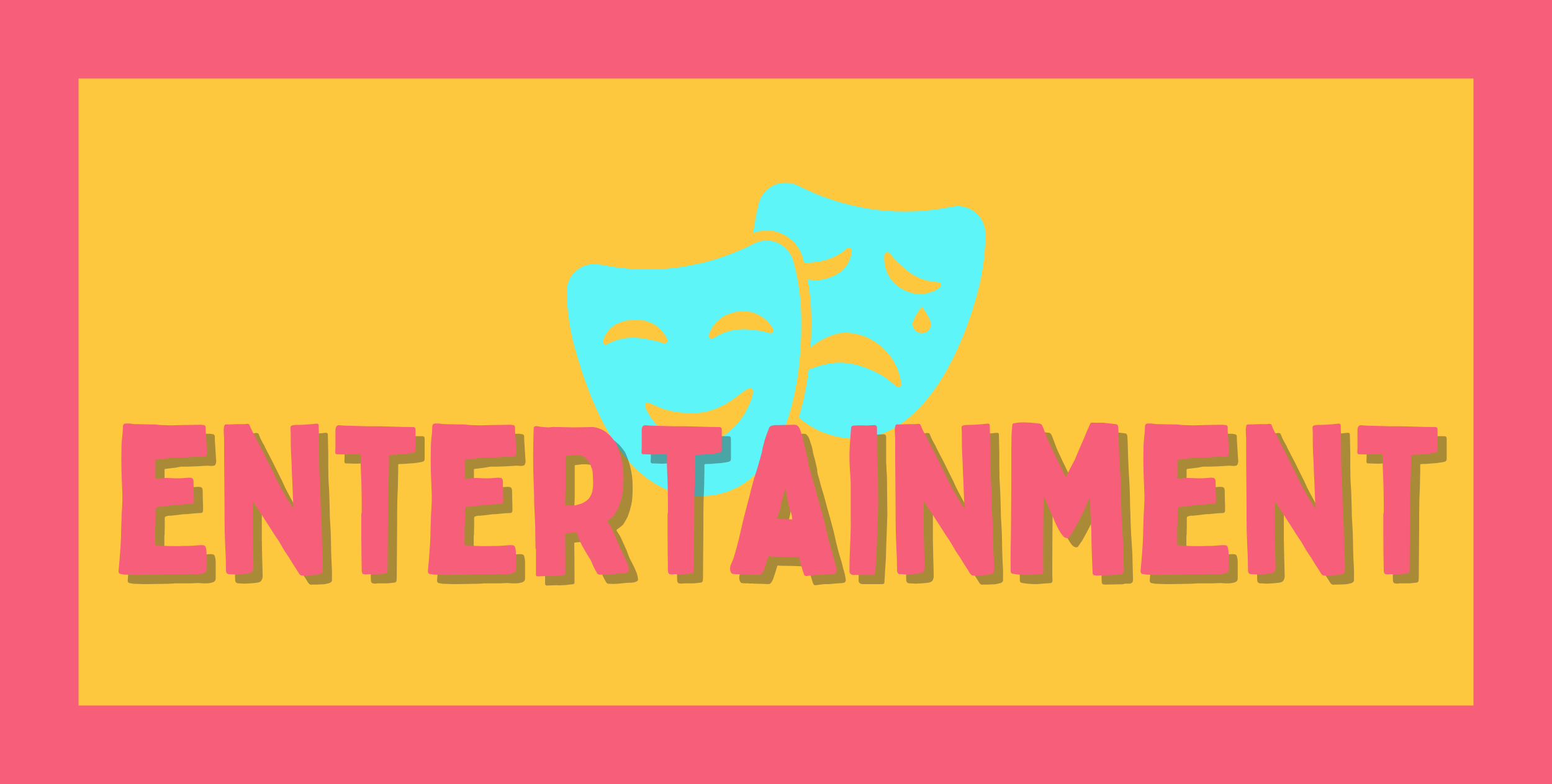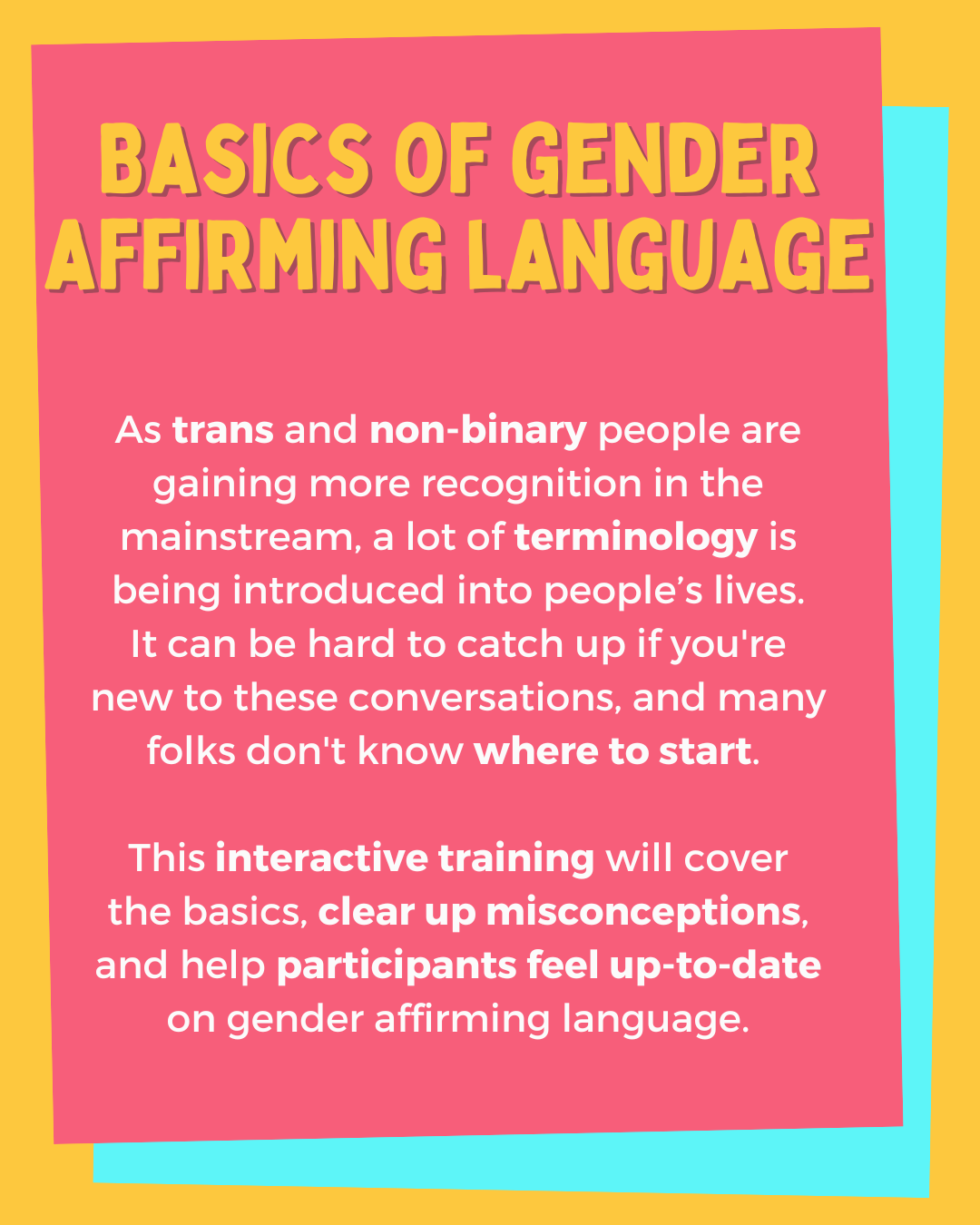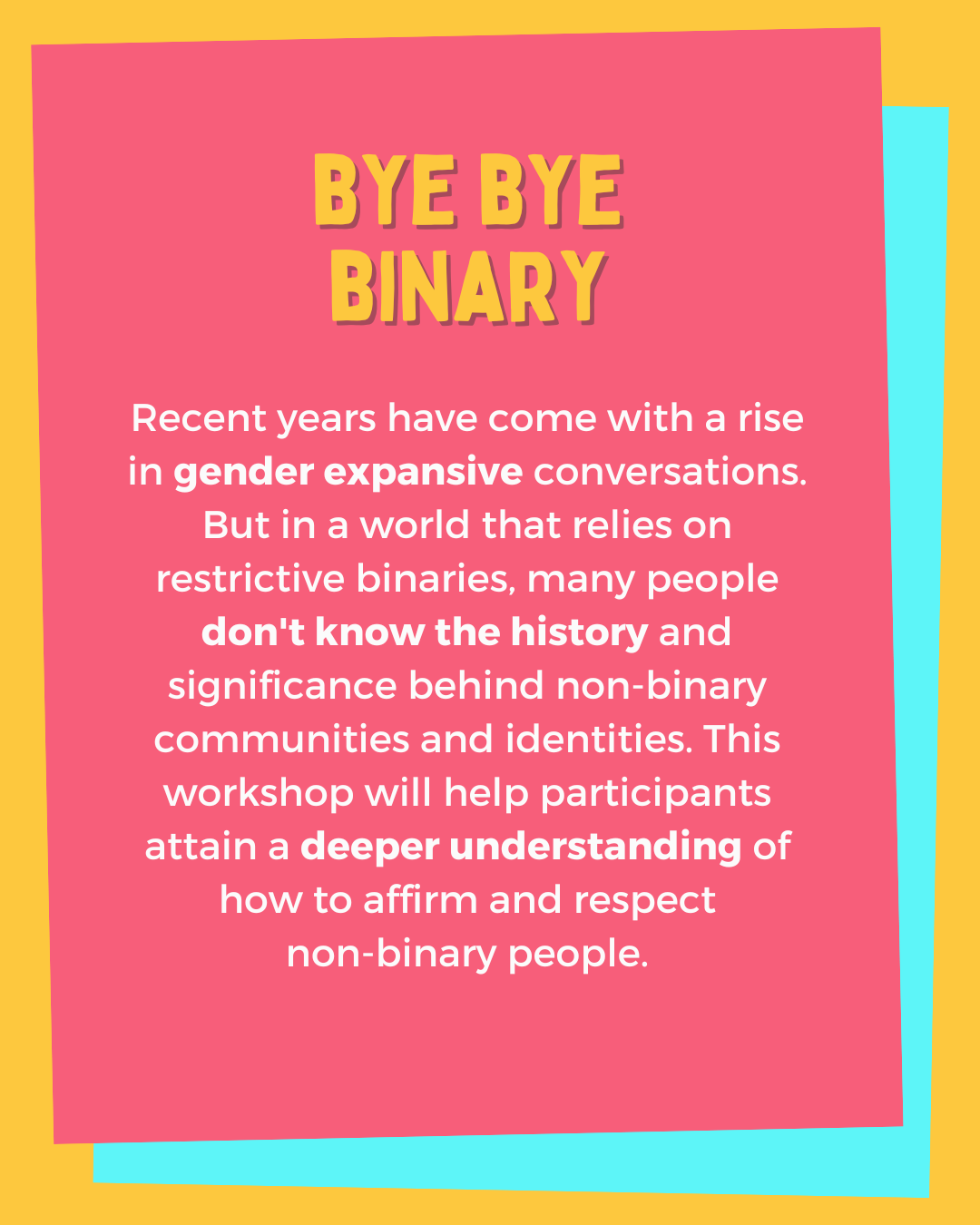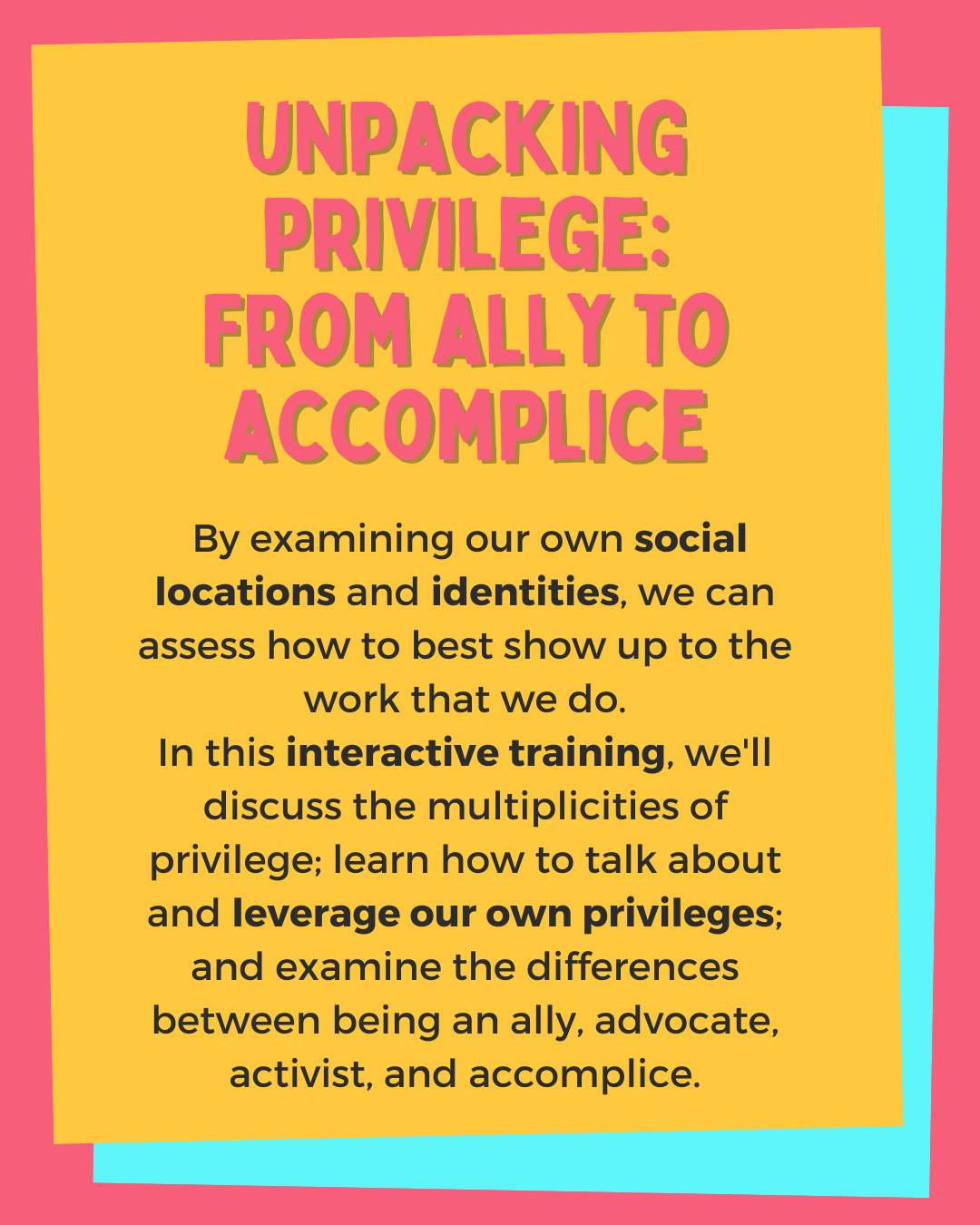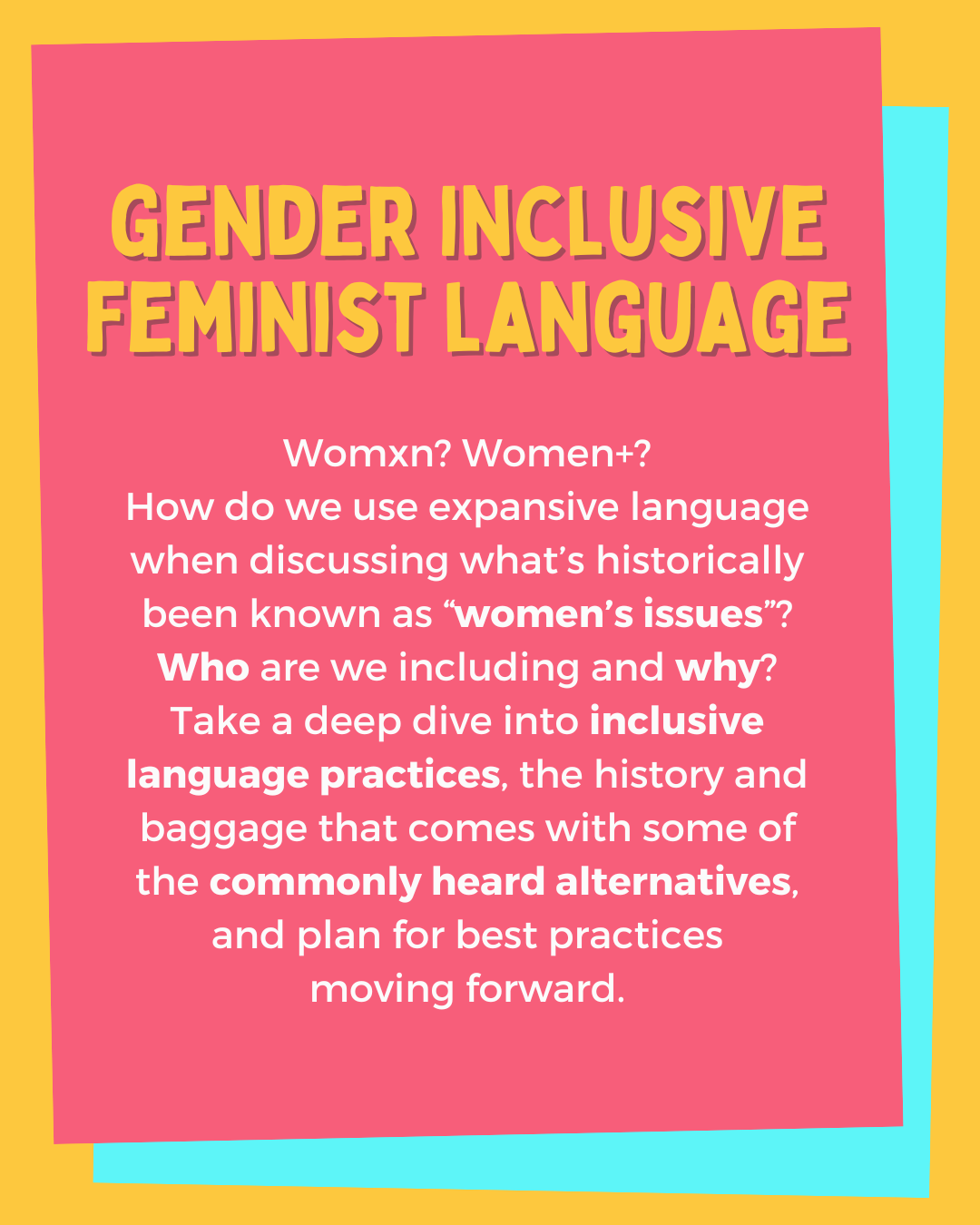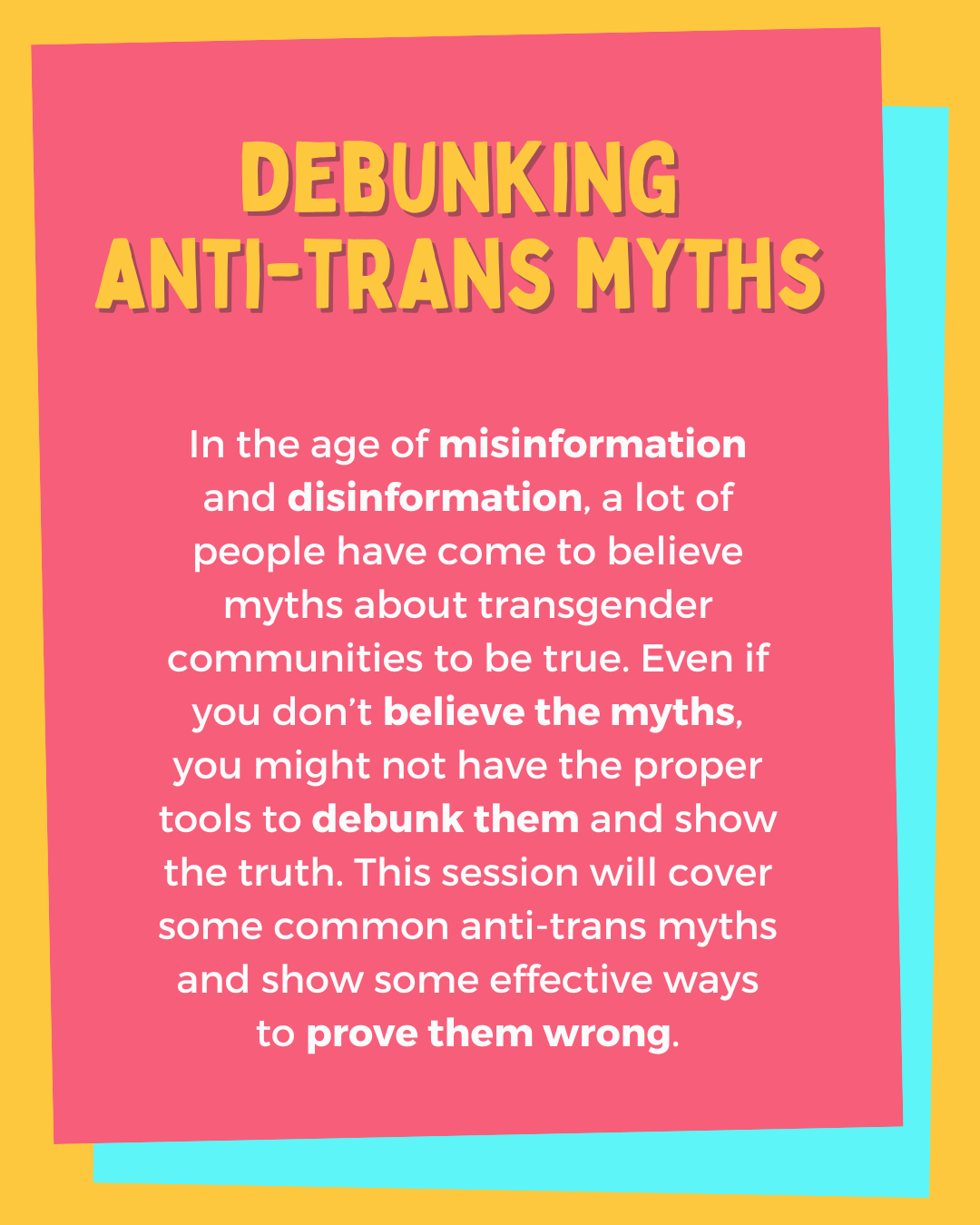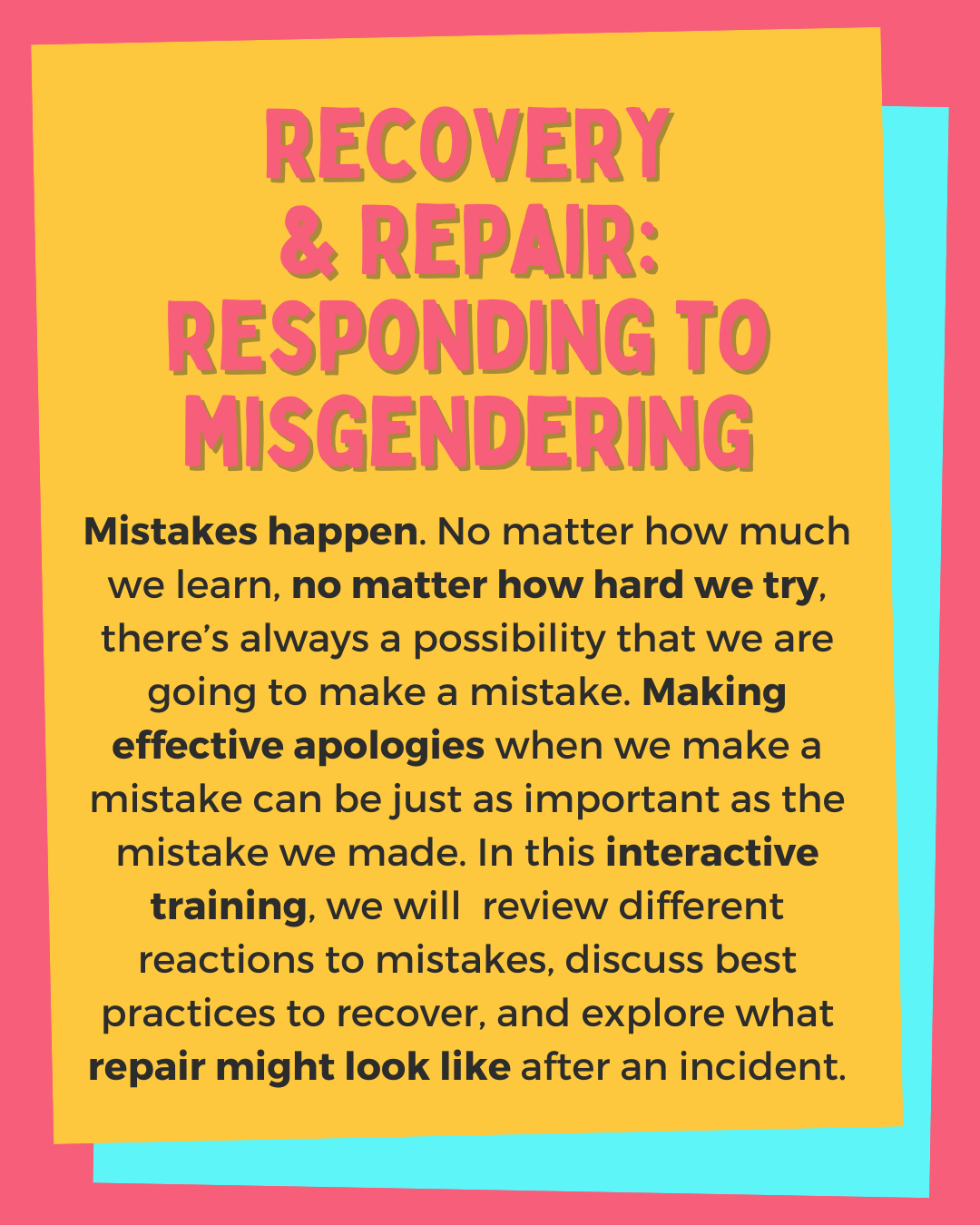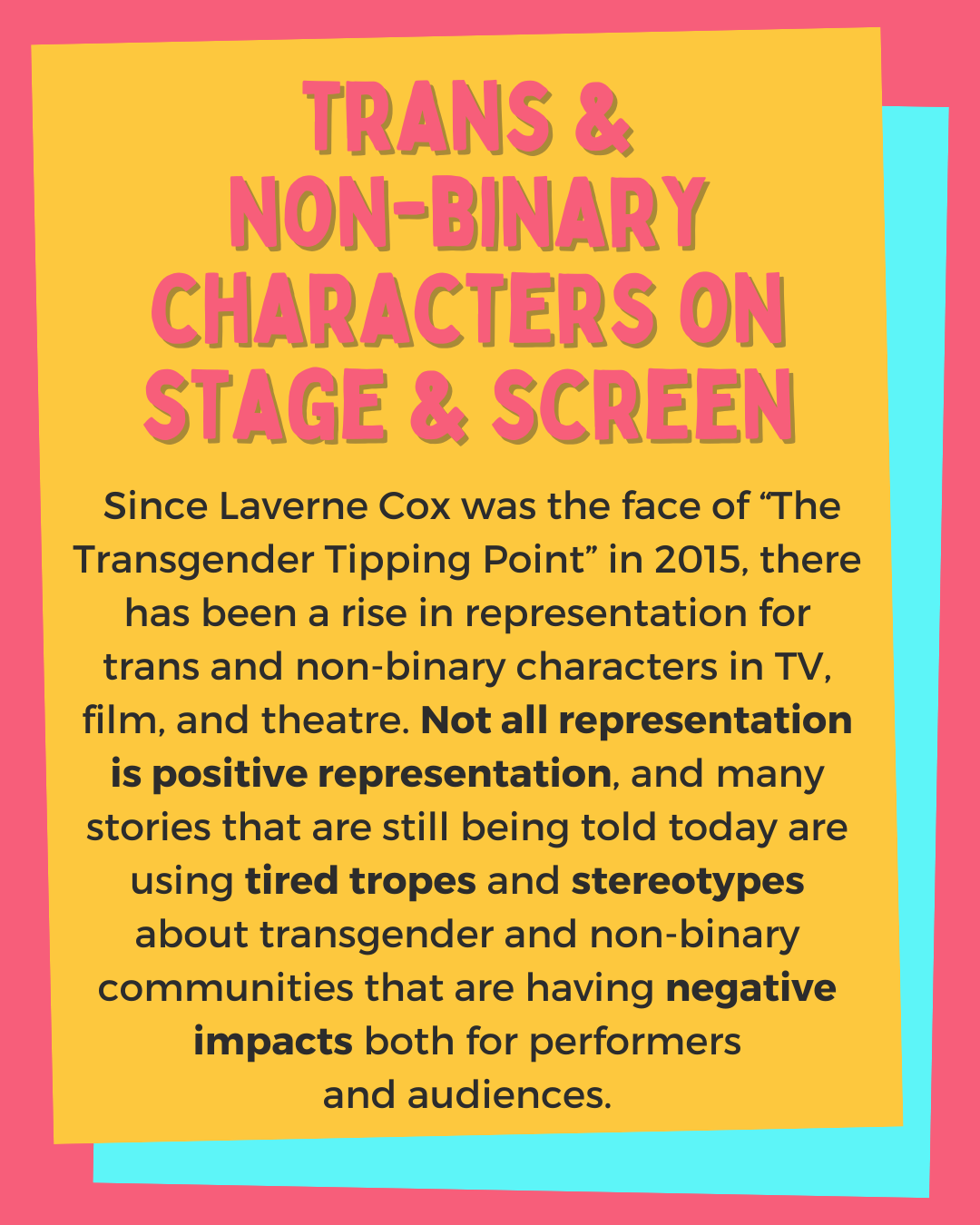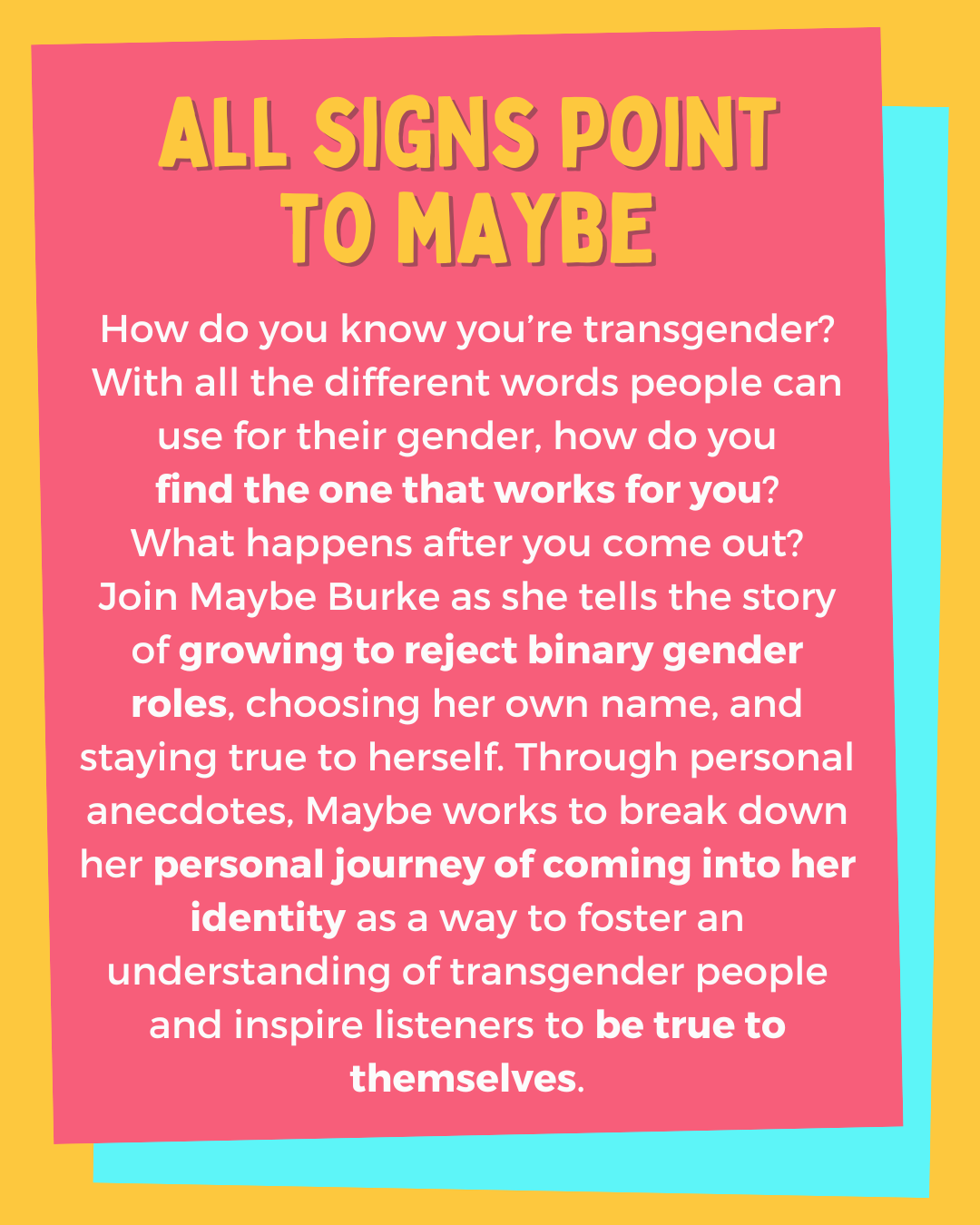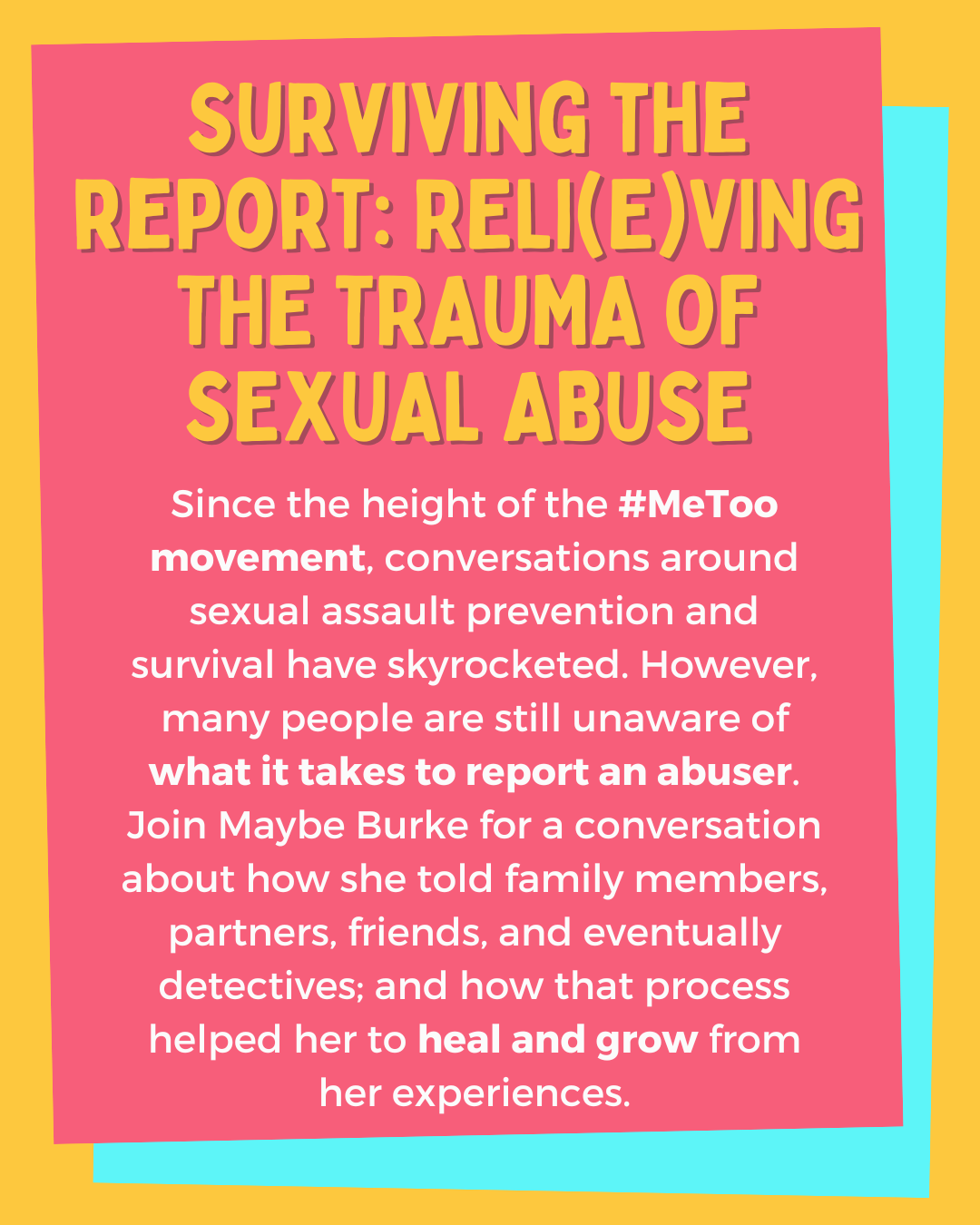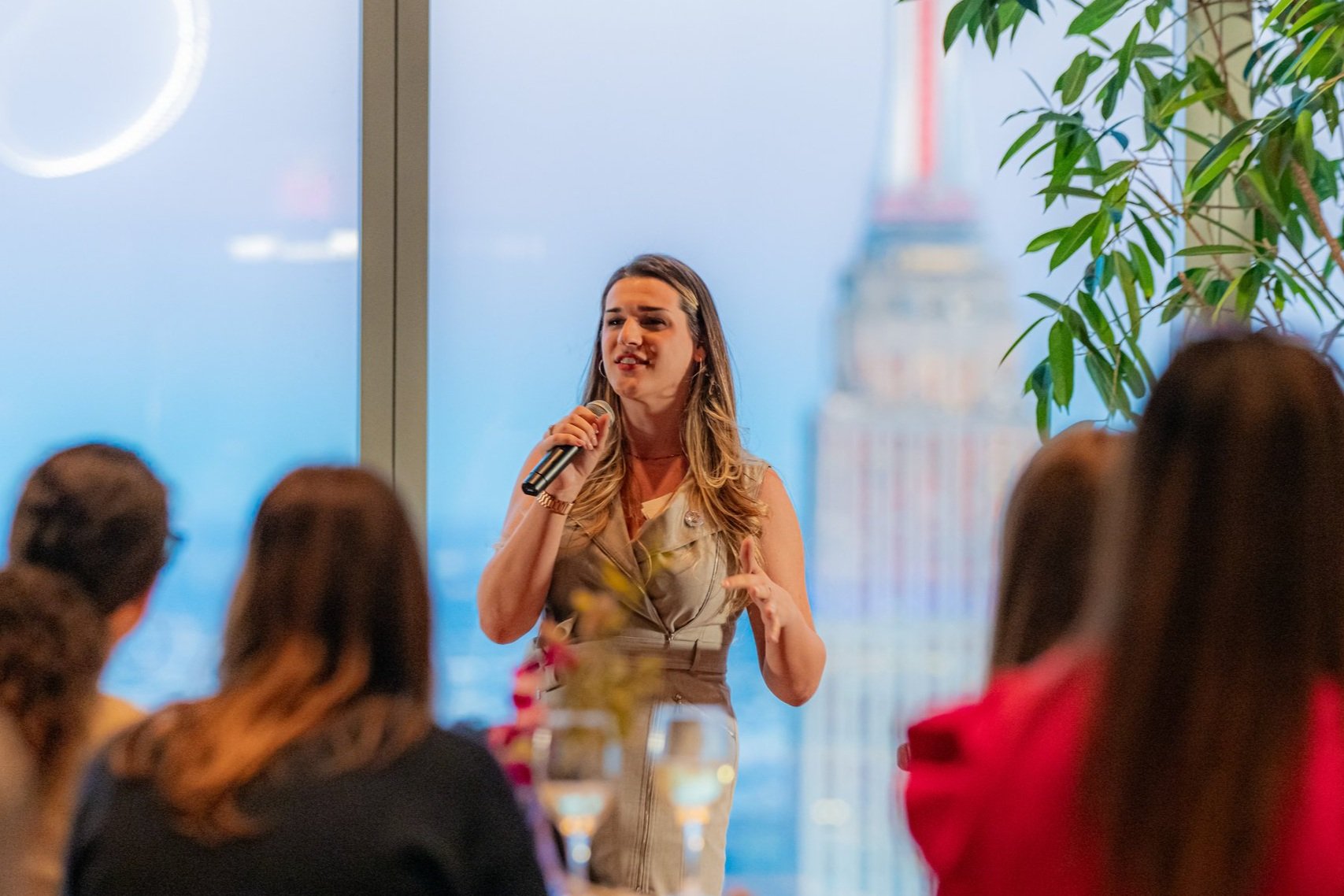
Maybe has spoken on many panels and facilitated several workshops and professional development trainings about gender and sexuality. She has spoken all over, from Broadway to TEDx, from High Schools to Universities, and from community centers to corporate boardrooms.
For trainings or speaking engagements, check out some of her favorite topics below. For booking or anything else you'd like to discuss, feel free reach out for more information.
RECENT CLIENTS
UPCOMING EVENTS
PROFESSIONAL DEVELOPMENT TRAININGS
CUSTOMIZABLE TRAININGS ACROSS DIFFERENT FIELDS
Or check out some specific topics below:
What Participants Are Saying
As trans and non-binary people are gaining more recognition in the mainstream, a lot of terminology is being introduced into people’s lives.
It can be hard to catch up if you're new to these conversations, and many folks don't know where to start.
This interactive training will cover the basics, clear up misconceptions, and help participants feel up-to-date on gender affirming language.
He. She. They? Ze? Not sure what all these pronouns mean? Grammar lessons a bit hazy? If you are nervous about messing up and offending someone or are confused about how to use gender neutral pronouns, we are here to help!
From the history behind neopronouns to practicing and utilizing affirming pronouns in sentences, this training will clear up common confusions and questions about pronouns and their usage.
Recent years have come with a rise in gender expansive conversations. But in a world that relies on restrictive binaries, many people don't know the history and significance behind non-binary communities and identities. This workshop will help participants attain a deeper understanding of how to affirm and respect
non-binary people.
By examining our own social locations and identities, we can assess how to best show up to the work that we do.
In this interactive training, we'll discuss the multiplicities of privilege; learn how to talk about and leverage our own privileges; and examine the differences between being an ally, advocate, activist, and accomplice.
This interactive training provides opportunities to practice the key skills needed by allies to be effective advocates. Learning the skills to show up for transgender and non-binary loved ones, colleagues, or communities at large.
If you want to build the skills to better advocate for the trans and non-binary people in your work and in your life, this training is a great first step.
Womxn? Women+?
How do we use expansive language when discussing what’s historically been known as “women’s issues”? Who are we including and why? Take a deep dive into inclusive language practices, the history and baggage that comes with some of the commonly heard alternatives, and plan for best practices
moving forward.
This interactive training will halp participants be able to recognize microaggressions and understand the impacts they have on trans and non-binary communities. Then, we will discuss a range of intervention options to help combat microaggressions, when you’re making them or when you witness them.
In the age of misinformation and disinformation, a lot of people have come to believe myths about transgender communities to be true. Even if you don’t believe the myths, you might not have the proper tools to debunk them and show the truth. This session will cover some common anti-trans myths and show some effective ways to prove them wrong.
Mistakes happen. No matter how much we learn, no matter how hard we try, there’s always a possibility that we are going to make a mistake. Making effective apologies when we make a mistake can be just as important as the mistake we made. In this interactive training, we will review different reactions to mistakes, discuss best practices to recover, and explore what repair might look like after an incident.
Since Laverne Cox was the face of “The Transgender Tipping Point” in 2015, there has been a rise in representation for trans and non-binary characters in TV, film, and theatre. Not all representation is positive representation, and many stories that are still being told today are using tired tropes and stereotypes about transgender and non-binary communities that are having negative impacts both for performers and audiences.
KEYNOTES & HOLIDAYS
Maybe is also available to offer keynote speeches, panel appearances, and other talks for various events acknowledging important dates that center gender and/or sexuality. These dates, amongst others, include:
Women’s History Month | March
International Women’s Day | March 8th
Trans Day of Visibility | March 31st
Trans History Week | First Week of May
International Day Against Homophobia, Biphobia and Transphobia | May 17th
Pride Month | June
Stonewall Riots Anniversary | June 28th
Non-Binary People’s Day | July 14th
LGBT History Month | October
National Coming Out Day | October 11th
International Pronouns Day | 3rd Wednesday in October
Trans Awareness Week | November 13th - 19th
Trans Day of Remembrance | November 20th
Other keynote talks include:
Believe in Maybe is a program for anyone who hasn't found their groove, those who question their place in the world, and those who are curious about embracing their uniqueness in the face of uncertainty.
How do you know you’re transgender? With all the different words people can use for their gender, how do you find the one that works for you? What happens after you come out? Join Maybe Burke as she tells the story of growing to reject binary gender roles, choosing her own name, and staying true to herself. Through personal anecdotes, Maybe works to break down her personal journey of coming into her identity as a way to foster an understanding of transgender people and inspire listeners to be true to themselves.
Since the height of the #MeToo movement, conversations around sexual assault prevention and survival have skyrocketed. However, many people are still unaware of what it takes to report an abuser. Join Maybe Burke for a conversation about how she told family members, partners, friends, and eventually detectives; and how that process helped her to heal and grow from her experiences.























